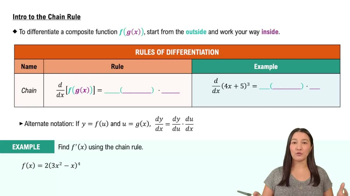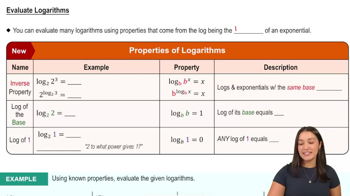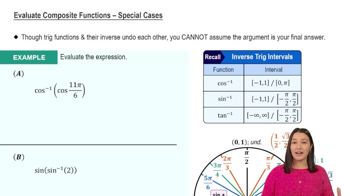Find the derivatives of the functions in Exercises 19–40.
g(t) = (1 + sin(3t) / (3 − 2t))⁻¹
 Verified step by step guidance
Verified step by step guidance Verified video answer for a similar problem:
Verified video answer for a similar problem:



 5:02m
5:02mMaster Intro to the Chain Rule with a bite sized video explanation from Patrick
Start learning